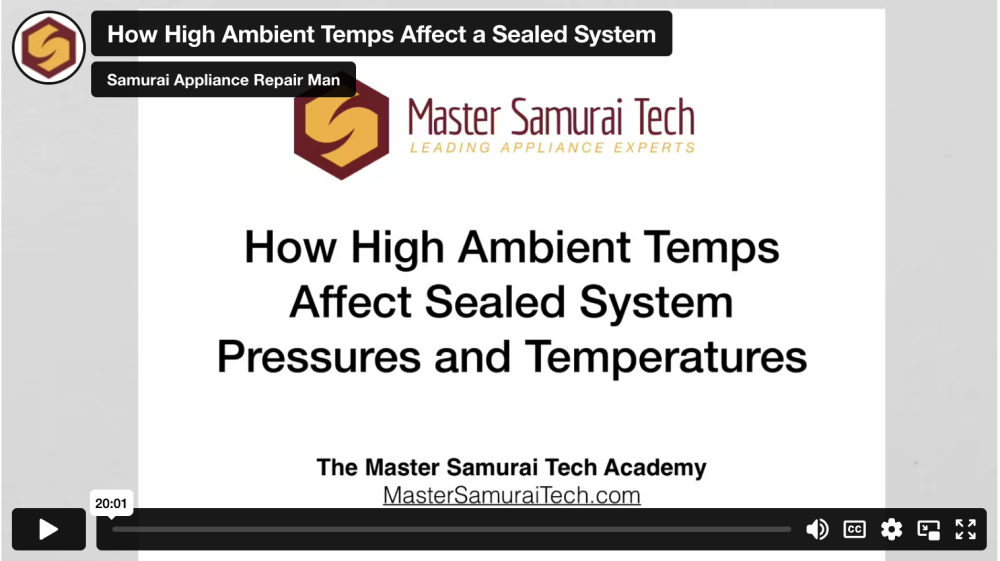[Video] How High Ambient Temps Affect a Sealed System
In this video, we give a comprehensive answer to this question: "Why is it that high ambient temps cause high side and low side pressures to rise?"
This simple question about one specific sealed system problem scenario is a great opportunity to take a deeper dive into how sealed systems work, how they're affected by their environment, and how an issue in one area of a sealed system has ramifications for every other area.
Topics covered include:
- The temperature/pressure relationship at saturation
- Compression ratios
- Volumetric efficiency
- Starved evaporator symptoms
...and more!
Click here to watch the video -- available only to tech members at Appliantology.
-
.png) 2
2





3 Comments
Recommended Comments